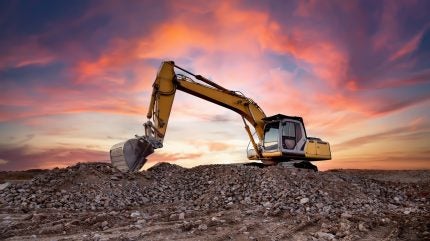All new major projects in Canada, including nuclear reactors, have to be reviewed under the Impact Assessment Act (IAA), which the government has promised to revise this spring after the Supreme Court last year ruled it overstepped into provincial jurisdiction.
Wilkinson said the legislative revisions to the IAA will be limited to addressing the concerns of the court because if the government does more than that, it would “have to open up large scale consultations that will take significant time.”
“That being said, we do have some ideas that as to how we can make the process more efficient and respond to the thoughts and aspirations of the provinces,” Wilkinson told Reuters in an interview on Wednesday, adding that accelerating the process will not come at the cost of addressing environmental concerns.
Canada is the world’s second-largest uranium producer, but regulatory delays have resulted in miners like NexGen Energy having to wait seven years and counting to build the world’s largest uranium mine in Saskatchewan.
“It’s a very long process,” said NexGen CEO Leigh Curyer. “Government and industry working together to bring these projects online more expeditiously, that is absolutely key.”
Nuclear energy enjoys broad public support, employing more than 70,000 people, yet Canada’s newest reactor came on line more than two decades ago and no nuclear project has been approved since the IAA was introduced in 2019.
If the approval timeline is cut, it could help Liberal Prime Minister Justin Trudeau’s government meet its goals of reducing the country’s electricity grid to net-zero carbon emissions by 2035, part of an overall goal to net-zero by 2050.
Climate groups and researchers have warned Canada risks missing its climate targets.
Nuclear expansion faces opposition, however, over charges it already doesn’t adequately review risks.
The Sierra Club environmental group opposes development of nuclear fuels because of dangerous waste, high cost and links to weapons, said Sierra’s Canada programs director Gretchen Fitzgerald.
“Canada again and again has failed to create valid environmental assessment processes and arms-length regulation of the nuclear power industry – leaving communities at risk,” Fitzgerald said.
OLD SITES VS NEW ONES
Last month, Ontario said would start work to refurbish aging nuclear reactors at Pickering, located about 45 km (28 miles) east of Toronto, to extend production by 30 years.
Canada’s 19 nuclear reactors produce 14% of the country’s electricity, and it has also exported technology for more than 30 Canada Deuterium Uranium (CANDU) reactors worldwide.
Now Ontario, which derives 50% of its power needs from nuclear, wants to roll out more reactors in Canada’s most populous province.
“We’ve been asking for nuclear to be exempted” from the IAA, Ontario Energy Minister Todd Smith told Reuters in an interview this month.
“If it’s going to take another seven to 10 years to build” a new nuclear station in Ontario, “then there’s absolutely no way” the federal government will hit its climate targets, Smith said.
Wilkinson said he held a meeting late last year with provincial energy ministers from Ontario, Saskatchewan, Alberta and New Brunswick in part to discuss how to accelerate assessments for new nuclear projects.
Earlier on Thursday, Smith joined Wilkinson when he announced the federal government would contribute up to C$50 million ($36.8 million) to Bruce Power to conduct consultations and studies to add new nuclear reactors in Tiverton, Ontario. Bruce Power’s plant is already the second-biggest in the world.
One of the ways to expedite the process is to treat expansions of existing nuclear sites – brownfields – differently from new facilities – greenfields – Wilkinson said.
Only Ontario and New Brunswick have existing reactors, so provinces that have none would “probably require a bit more of an assessment”, he said.
Ontario is developing what could be the first operating small modular reactor (SMR) in the Western world by the end of the decade, a technology that many countries are looking at as a way of replacing coal-fired plants, Wilkinson said.
Wilkinson said SMRs are “sort of carbon copies of each other” and so should not require repetitive engineering assessments.
The government is also reviewing its entire regulatory process to approve large industrial projects including nuclear by eliminating overlaps between the provincial and federal assessments, he said. The details of that review, which will have a particular impact on mining, will be released in the next few months, Wilkinson said.
Canada’s deep experience with nuclear means it can “leverage its experience and its technology to create jobs and economic opportunity,” Wilkinson added.
(Reporting by Steve Scherer and Rod Nickel, additional reporting by Nia Williams Editing by Denny Thomas and Nick Zieminski)
Share This:




